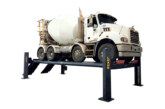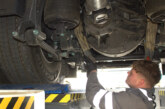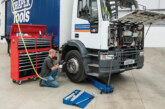Goodyear reveals sustainability trends
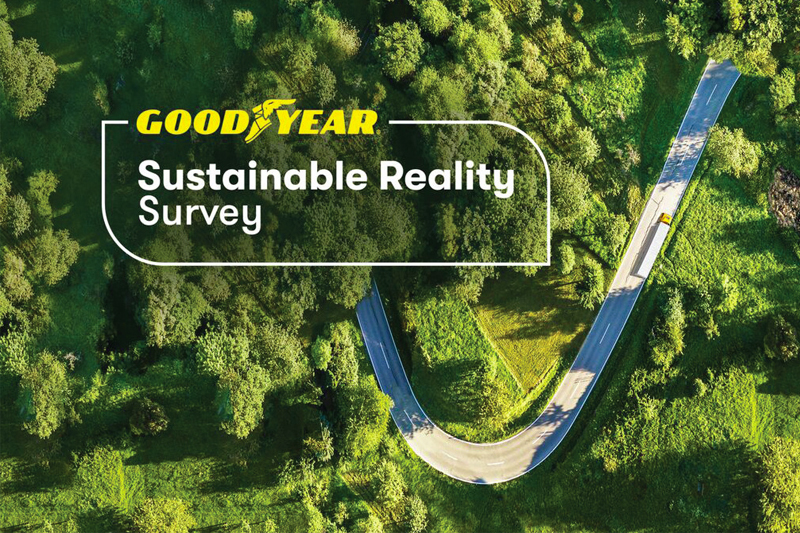
Europe’s drive towards carbon neutrality is shaping the transport sector’s shift to sustainable practices. Goodyear’s annual Sustainable Reality Survey, now in its third iteration, reveals emerging trends in the industry’s journey towards environmental sustainability. CVW reports.
This report, available for the UK/Ireland and broader European regions, delves into the prevailing trends, the steps fleets are currently taking to reduce their environmental impact, and the challenges they face in the process of making their operations more sustainable.
The authors’ own assessment of the results is resolutely upbeat – all the indicators are pointing the right way, towards a greener operation. “Overwhelmingly, we see a positive evolution. It seems that the trends we observed in 2022 are carrying over to 2023, in addition to some exciting new developments for middle-sized and large fleets,” they write.
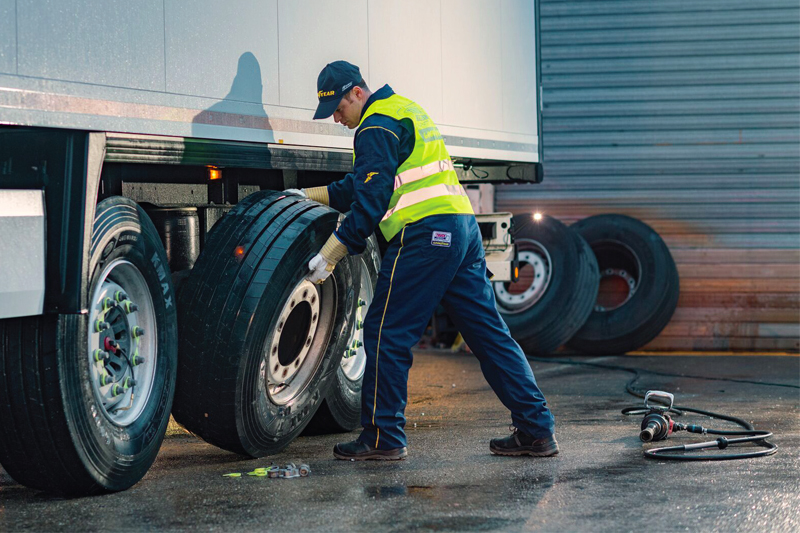
Well, up to a point. The survey has undoubtedly tapped into the collective consciousness of more than 1,600 fleets across Europe and does shed light on the commercial vehicle and haulage industry’s stance on sustainability. But the part we’re interested in, the report on UK and Ireland, is based on just 74 responses and 10% of these were “I don’t work in the transport industry”.
Yet, while the survey may need to be taken with a pinch of salt, 31% of respondents were managing mega-fleets of more than 500 vehicles and the survey does indicate significant difference between the behaviour of the larger fleets and the smaller operators. In short: size matters.
For instance, Goodyear reports a trend of fleets adopting sustainable measures to cut operating costs, rising from 41% to 50% in 2023. This trend, though, is more prevalent in larger fleets; 74% of those with over 500 vehicles have taken sustainable actions, a trend also seen in fleets with more than 250 vehicles.
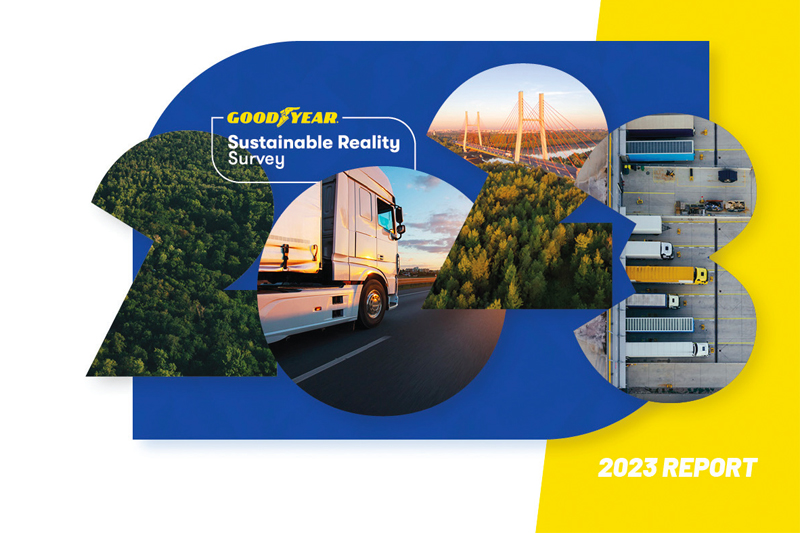
Larger fleets place a higher importance on sustainability, which may be linked to their stability and capacity for long-term planning. According to Goodyear’s survey, 67% of respondents indicated corporate values or climate change concern as the primary driver for sustainability, in contrast to 23% who cited reduced operating costs. Notably, 7% identified sustainability as a prerequisite for new business opportunities.
Fleets are pursuing sustainability through various approaches: 43% are renewing their fleet, 67% are adopting fuel-efficient tyres, and both driver training and telematics for monitoring fuel consumption are utilised by 64% and 63%, respectively. Retread tyres are part of 49% of fleets’ strategies, while 34% are deploying higher capacity vehicles and 36% are considering alternative powertrains.
Smaller fleets do not use retread tyres, though larger fleets are more inclined to employ retread tyres as part of their sustainable operations. Frustratingly, the survey does not offer any insight as to why this should be. Do the operators of smaller fleets mistrust the quality of retreads, are they erring on the side of safety – or is it simply that the larger fleets can afford to employ well-briefed specialist staff that know about the improvements to the quality of retreads?
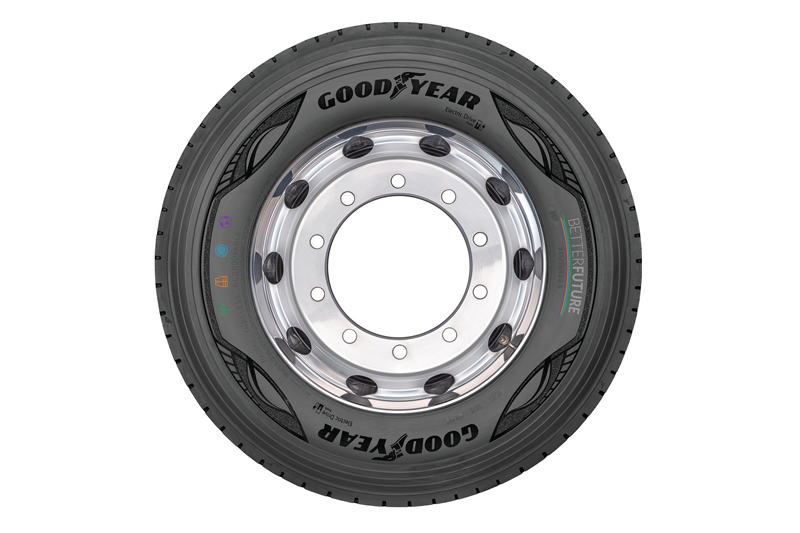
In the know
There are signs that it could be the latter, that scale gives the larger fleets the advantage of greater knowledge. Looking at the responses to questions about familiarity with impending environmental regulations, for instance, it is clear that the larger the fleet, the greater the familiarity. The survey shows that 86% of operators feel familiar, but among small fleets with 1-10 vehicles, 57% are not. In contrast, 55% of fleets more than 500 vehicles report high familiarity, though 4% admit to a complete lack of understanding. Larger fleets are also more proactive in formalising sustainability objectives, with smaller fleets lagging.
The same bias can be seen when the survey asks what incentives would make fleets adopt more sustainable practices. The need for simpler solutions comes top in the 250-500 vehicle segment (90%) even though, overall, 64% of fleets report that ease of use being a barrier. Fleets as a whole report that financial incentives (72%) would be the most important motivator for fleets to enhance sustainability, with customer demand and investor interest also playing roles.
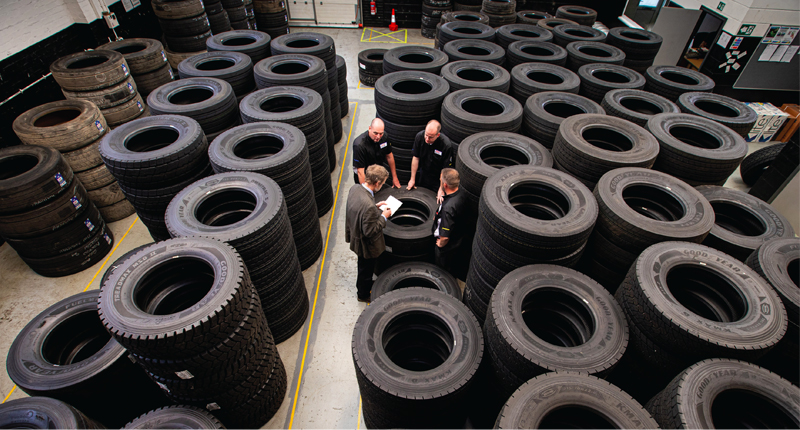
The issue of cost
Responding to questions about the barriers to sustainable practices, respondents believe that the main issues were costs (54%), solution complexity (37%), and doubts about solution efficacy (31%). Staff limitations are cited by 19%, and tradeoff issues are also a concern for another 19%. Only 10% see no barriers to sustainability.
The Goodyear report has its limitations, yet it does indicate that fleets will be more sustainable if they have tools that are simple to use and cheap enough to afford and operate.



![Bosch outlines ESI[tronic] workshop software](https://cvwmagazine.co.uk/wp-content/uploads/2025/07/Bosch-ESItronic-25-165x109.jpg)


